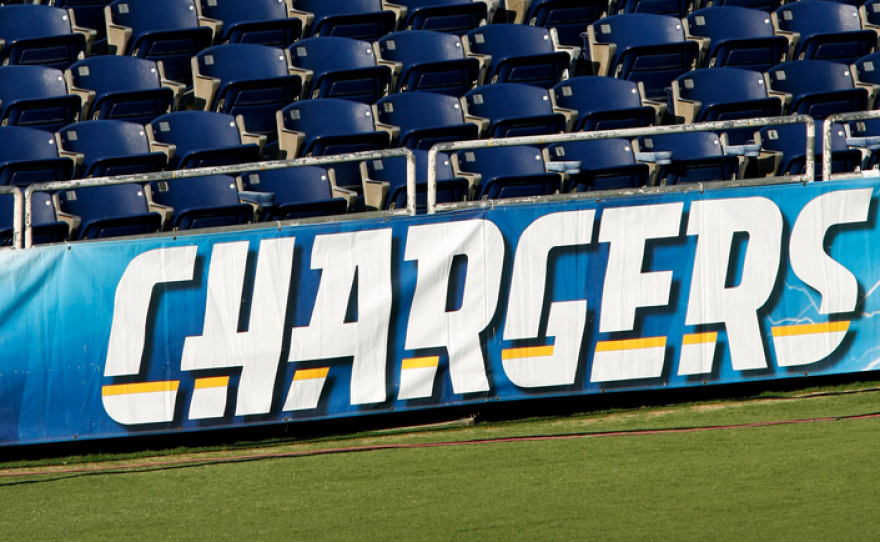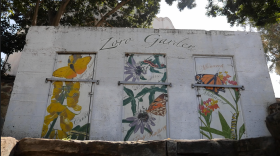Two San Diego politicians who reiterated their opposition to a ballot measure on the downtown stadium plan are set to publicly explain their positions Wednesday.
A debate is scheduled on Measure C, which would provide the framework for building the project if passed by two-thirds of voters in November.
Councilman Scott Sherman and Councilman-elect Chris Ward on Tuesday said they oppose Measure C. Sherman represents Mission Valley, home of the stadium where the Chargers currently play. They will again set out their positions at a news conference Wednesday morning.
"After the never-ending drama and bomb-throwing in 2015 as the Chargers organization attempted to leave San Diego, do we have enough trust to put the financial well-being of San Diego in their hands?" Sherman said. "Trust is an earned commodity and the Chargers haven't earned the taxpayers' trust."
The East Village, the would-be site of the stadium project, will be represented by Ward beginning in December.
"Over the course of my campaign, I consistently opposed public funding of a football stadium and prioritized the needs of our neighborhoods," Ward said. "On top of being a bad deal for taxpayers, Measure C disregards public process and smart land use planning. I stand with downtown residents and councilmembers on both sides of the aisle to ask San Diegans to vote No on Measure C."
Measure C, if approved by two-thirds of voters in November, would raise San Diego's hotel room tax to help pay for the project, which has an estimated price tag of $1.8 billion.
The levy is currently 10.5 percent, with a separate 2 percent fee that funds tourism marketing. Measure C would raise the tax to a total of 16.5 percent.
The Chargers and National Football League would kick in a combined $650 million toward the project.
Sherman and Ward joined Councilmen Chris Cate and David Alvarez in opposing the project. Mayor Kevin Faulconer has not announced his position.
The proposition has gained the backing of San Diego Regional Chamber of Commerce. President and CEO Jerry Sanders said at a news conference in July that the plan is the best way to keep the Chargers in San Diego and enhance the city's convention industry.
The debate, which is not open to the public other than by invitation, will feature the authors of economic impact and marketing studies on the Chargers' plans — which landed on opposite sides of the issues.
Chargers consultants Rob Hunden and David O'Neal concluded in August that the plans were sound, while an earlier study commissioned by the San Diego Tourism Marketing District found the tax increase would not generate nearly enough extra money to finance the project.






